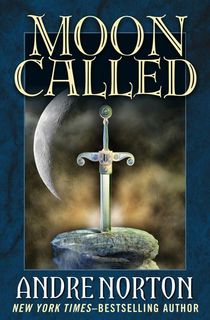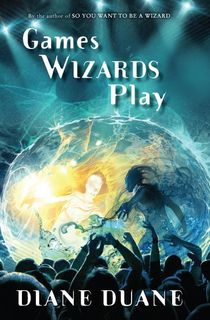If you’ve lived in literary spaces long enough, you’ve likely come across the war over tropes. Some people love them, others hate them. But no matter what side you fall on, there’s no denying that tropes rule fiction.
When they’re done well, they help the reader tap into deeper connection and meaning within the story. They offer a way to find the themes and stories that resonate the most with you. If you love time travel, they help you find a wide array of books that fill that need. It doesn’t matter if you want to go on a quest, travel to space, fall in love, or save the world, there’s a trope for you.
As with anything, some tropes are more common than others. Here are ten must-read books based on the most popular SFF tropes.
The First Contact Trope

The Three-Body Problem
In the middle of China’s Cultural Revolution, a secret military project tries to make contact with aliens. They never expected that the civilization they contacted is on the brink of destruction. And Earth looks like a fantastic alternative. But humanity isn’t ready to give up. Or agree. As different factions rise, some who want to fight the aliens and others who want to welcome them, they all prepare to meet alien life.
The First Contact trope makes the idea that we're not alone in the universe a concrete reality. The contact can be peaceful, accidental, or even aggressive. But presented within the story has to be actual contact of an alien life with Earth.
10 Great Sci-Fi/Fantasy Tropes
The Chosen One Trope

Moon Called
Thora is The Chosen One. She carries the sacred jewel in her chest, granting her the powers of the Moon. When the Dark Lord rises, she joins with Makil, the Man of Pure Light who carries the Sword or Lur. Together, they must travel into the underworld to face a world of soulless machines and endless night. But if they fail, their fates will be entombed in the flesh of evil.
One of the most recognizable tropes, The Chosen One is the idea that the protagonist plays an inevitable role in the story. The characters' fates are tied to some aspect of who they are, whether it’s the magical gifts they carry or the blood in their veins.
The Wise Sage Trope

Games Wizards Play
Every eleven years, the senior Wizards hold an intense, three-week event to find the best and the brightest young wizards. But even among the most talented, there are always difficult cases. That’s where Kit Rodirguez, Nita Callahan, and Nita’s sister Dairine come in. They’re given the task of shaping two particularly tough cases: an egotistical sun technician and an earthquake handler with a particularly toxic family. But when they make it through the ruthless competition all the way to the finals, the young wizards and their mentors are thrown into a fight with nothing less than the fate of the world hanging in the balance.
The Wise Sage trope is where the protagonist relies on a mentor of guide to help steer them towards their destiny. They have the wisdom and skills that the hero will need to complete their quest.
The Magical Artifacts Trope

A Discovery of Witches
Diana Bishop was uninterested in the gift of sorcery handed down from her long lineage of witches. But that doesn’t mean magic feels the same. When she’s working in Oxford’s Bodleian Library, a bewitched alchemical manuscript finds her. She banishes it back to the stacks, but that’s not enough. The magical underworld knows the book appeared, and they want it. With daemons, witches, and vampires all hunting for the manuscript, Diana finds herself in the middle of a budding supernatural war. And the only way to stop it, is to break the manuscript’s curse.
Magical Artifacts can come in many forms: the artifact of doom, the artifact of power, ancient artifacts, and more. It’s an item that isn’t found in nature, that is either cursed or blessed and imbues some kind of power on the individual who wields it.
The Dark Lord Trope

Dark Lord of Derkholm
Everyone is sick of Mr. Chesney’s Pilgrim Parties. Every year, he brings in groups of tourists from the world next door. And every year, they disrupt everything. The Wizard Derk was chosen to play the role of The Dark Lord, with his son playing the Wizard guide. And even though Mr. Chesney has the support of a powerful demon, the rest of the world has spoken: These parties must stop. Now, it’s up to Derk to save the world from Mr. Chesney and stop the chaos he ushers in every year.
Every hero has to have a villain. And one of the most commonly used tropes to set up the evil elements is The Dark Lord. This is the big bad of the story, the ultimate rival against the hero. Where our hero represents good, The Dark Lord is the epitome of all that’s evil.
The Hidden Worlds Trope

Neverwhere
Hidden beneath the streets of London is a world most people can’t imagine. It’s filled with monsters and saints, murderers and angels, knights and girls. Neverwhere exists between the cracks and takes in those who fall. Richard Mayhew was never meant to see this world, but a single act of kindness throws him out of his safe and predictable world into one of danger and unpredictability. He’s about to discover everything he could ever wish to know about this remarkable new world. But in this classic Neil Gaiman work, all he wants is to go home.
Whether it’s a world hiding in plain sight or one that exists adjacent to our own, Hidden Worlds transport the reader to a secret world somehow connected to our own. Often, people can travel between them, or once awoken, it becomes possible to see what was hidden all around them.
The Time Travel Trope

Kindred
Dana is celebrating her 26th birthday with her new husband when she is suddenly taken from her California home and dropped in the antebellum South. Rufus, the white plantation owner’s son, is drowing. And Dana, a Black woman, has been summoned to save him. Time and time again, she’s transported from her modern free life to one where she must live and survive as a slave. Each time she stays stretches longer and more dangerous, until Dana can’t be certain that she won’t die in the past centuries before her life ever begins.
The Time Travel trope is an incredibly popular science fiction trope. It works in everything from hard science fiction plots to stories with more fantastical elements, the only difference is the mechanism that enables the traveling to take place: In science fiction, this is generally a piece of technology, where fantasy relies on either unexplained forces or magic to facilitate the travel.
The Quest Trope

The Underground Railroad
An outcast even among the other Georgia slaves, Cora knows that nothing but pain and misery await her on the other side of becoming a woman. When Caesar, a slave from Virginia, comes to their plantation, he brings stories of the Underground Railroad. In this story, the Railroad is a physical place underground, complete with conductors and engineers. Together, the two decide to risk everything and escape. They manage to find a station, but not before Cora kills a white boy who tries to capture them. As a relentless slave catcher closes in, Cora travels state by state, desperate to escape and find true freedom.
The Quest is probably one of the most popular and widely used tropes in the genre. It follows the Hero’s Journey and sends our hero out of their comfortable world, into one filled with danger. It doesn’t matter if the fate of the world is at risk, or the character is on a journey of self-discovery, there’s something immensely satisfying about a character leaving their comfort zone to discover unknown truths, overcome insurmountable obstacles, and find victory along the way.
The Found Family Trope

The Long Way to a Small, Angry Planet
Rosemary Harper isn’t expecting a grand adventure. The aging Wayfarer spaceship looks like it’s seen better days. But it promises a bed and a chance to see parts of the galaxy she’s never seen before. Even better, it’s going to take her far away from the past she desperately wants to run away from. Life on board is exactly what she wants: chaotic and unpredictable. And the crew is more diverse than anything she’s ever encountered.
Everything changes when they take a dangerous job. Rosemary didn’t sign up to risk her life, and relying on others has never worked out great for her before. In the outskirts of space, she has to learn to trust the crew with her life. Who knows: Maybe family isn’t so bad, after all.
Not every character starts with a family. Or, if they do, it’s a terrible one. Whether the main character is an orphan or simply needs to find a new family with healthier emotional connections, the found family represents a group that fulfils the safety and love they couldn’t find anywhere else.
The Grumpy AI Trope

All Systems Red
Artificial Intelligence as a trope generally deals with the technology after it has gained some self-awareness. And this is where it gets fun. Does it go mad with power? Or does it decide that even though humans are more trouble than they’re worth, somehow the AI can’t help but be there for them anyway.
That’s the take Wells utilizes in the Murderbot series. Murderbot would rather be left alone to watch its soaps. But as the Company-supplied security android, its job is to protect the humans as they explore distant planets. It hides the fact that it hacked its own governor module, allowing it to think and act for itself. And everything is going fine. Until a nearby mission goes dark. And Murderbot has to act to save the scientists and find the truth.








